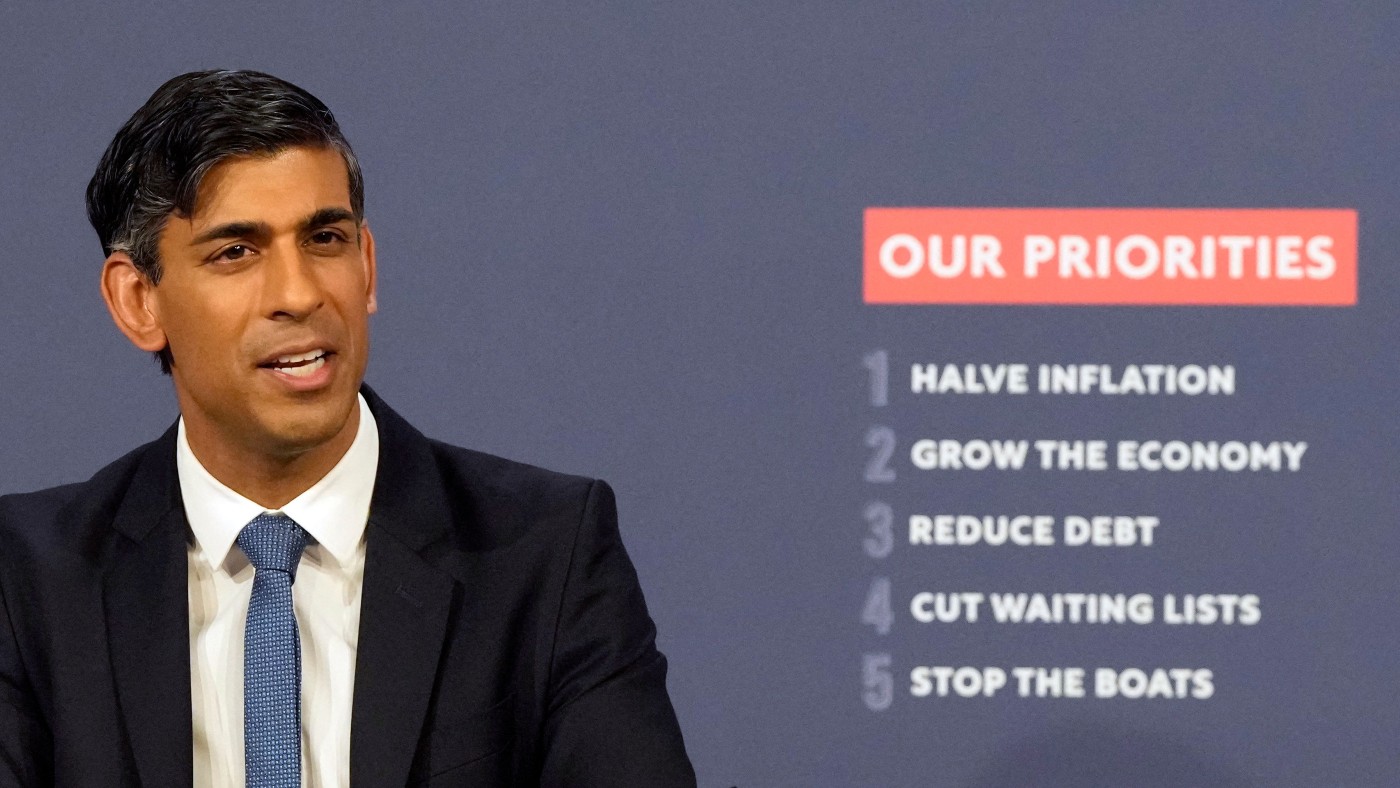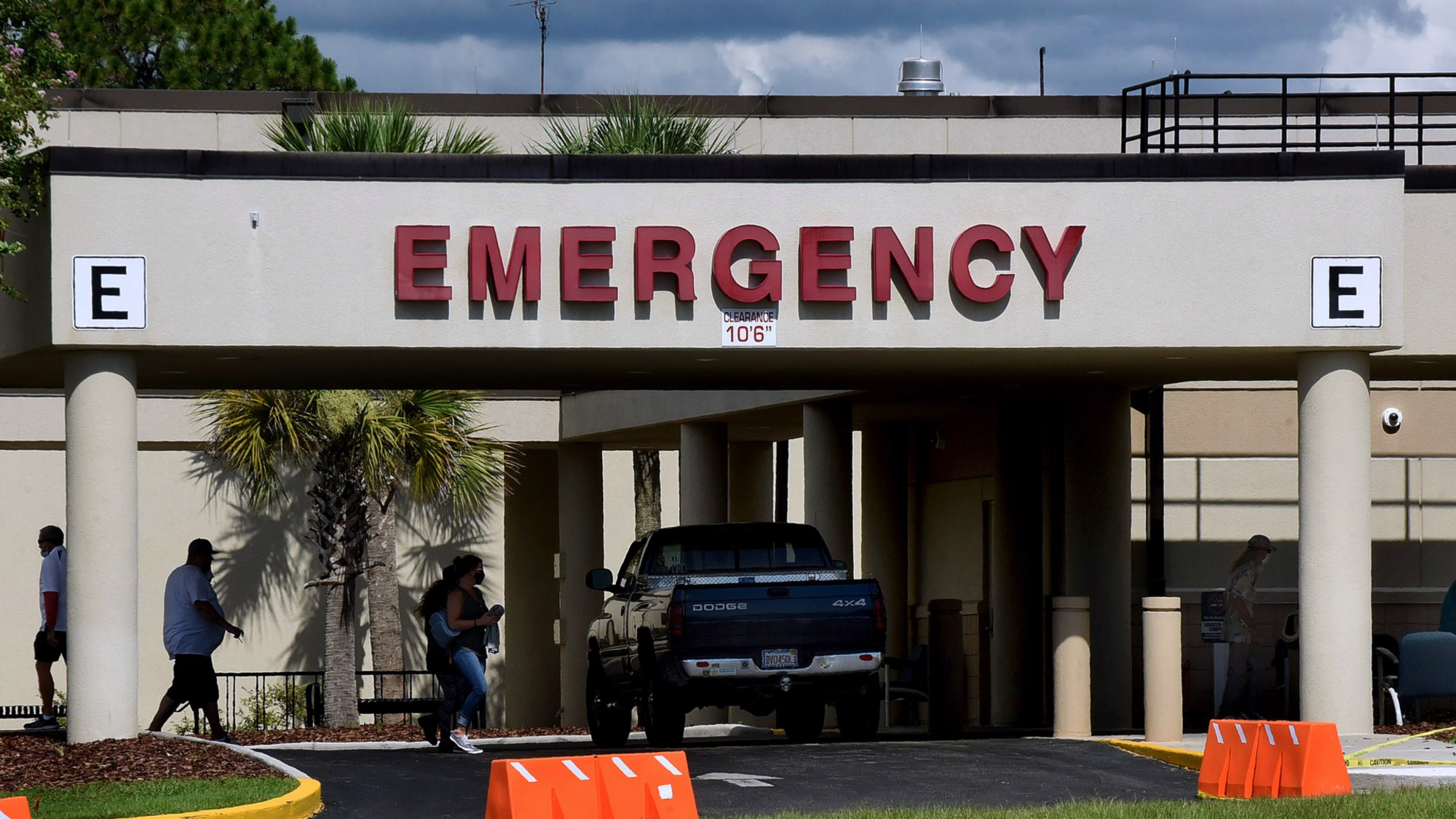Rishi Sunak’s NHS plan explained in five points
More apprenticeships and increased technology among ‘historic’ proposals

A free daily email with the biggest news stories of the day – and the best features from TheWeek.com
You are now subscribed
Your newsletter sign-up was successful
The government is promising “the biggest ever expansion in workforce training in the NHS’s history” as it announces “historic” plans to boost doctor numbers.
In what he described as “one of the most significant commitments I will make as prime minister”, Rishi Sunak pledged £2.4 billion over five years to train and hire more staff. More than 300,000 extra nurses, doctors and other health workers will be employed under the plans.
The prime minister answered questions about the new NHS Long Term Workforce Plan in a “Covid-style Downing Street press conference”, said The Times, but opposition politicians are already on the attack, with Labour accusing the government of copying its proposals.
The Week
Escape your echo chamber. Get the facts behind the news, plus analysis from multiple perspectives.

Sign up for The Week's Free Newsletters
From our morning news briefing to a weekly Good News Newsletter, get the best of The Week delivered directly to your inbox.
From our morning news briefing to a weekly Good News Newsletter, get the best of The Week delivered directly to your inbox.
This is what we know so far.
Double medical school places
Officials said the plan will double medical school training places to 15,000 by 2031, with more places in areas with the greatest shortages of doctors, said The Independent.
The document will set out to increase the number of GP training places by 50% to 6,000 by 2031 and “almost double the number of adult nurse training places by 2031”.
This, it is hoped, will “banish the service’s chronic lack of frontline personnel, its heavy use of agency staff and the increasing reliance on foreign workers”, said The Guardian.
A free daily email with the biggest news stories of the day – and the best features from TheWeek.com
The proposals come as officials “warned that, without action, there could be 360,000 vacancies in the health service by 2037”, said Metro.
Ramped up apprenticeships
The plan sets out to “ramp up apprenticeships”, said The Independent, so students can “earn while they learn”. It is estimated that one in six of all training for clinical staff, including doctors, nurses and other health professionals, will be offered through degree apprenticeships by 2028, including 850 doctor apprenticeships.
“We believe apprenticeships will provide a particular boost in areas where it’s harder to recruit staff and reduce barriers to entry for more disadvantaged people looking to start a career in medicine,” said Matthew Taylor, chief executive of the NHS Confederation. A new apprenticeship for doctors will be launched next year, reported Personnel Today.
Retaining staff
As well as bringing new staff in, the plan is aimed at keeping hold of those already working in the health service. Officials said the document will also have a “renewed focus on retention” – with more flexible working options and better career development.
It is “hoped these plans”, together with “reforms to pension schemes”, could mean that up to 130,000 staff stay working in NHS for longer, said The Independent.
Bot booking
The government hopes to bring more technology into the health service, said The Telegraph. It is calling for the use of “robotic process automation” to schedule appointments and operations alongside the use of AI software such as ChatGPT to transcribe doctors’ notes.
It is hoped that bots will automate booking processes up to 10 times faster than a human, while saving up to 30% in administrative costs. Sunak said this would “ensure that the NHS is fit for the future” and “modernise the NHS for the long term”.
Too late?
However, the workforce plan has not been universally praised. It has apparently been copied from Labour, said Wes Streeting. “To be fair to the government, it looks like they’re about to adopt our plan,” the shadow health secretary told Times Radio.
However, he added that the government “should have done this a decade ago – then the NHS would have enough staff today”. Liberal Democrat health spokesperson Daisy Cooper agreed that the plan “will come too late for the millions of people who have suffered in pain or died in hospital corridors waiting for treatment because the government refused to act”.
Meanwhile, the union Unison warned yesterday that ministers must not ignore “support roles”, including porters, cleaners and 999 call handlers, in its NHS workforce strategy, said the i news site.
Chas Newkey-Burden has been part of The Week Digital team for more than a decade and a journalist for 25 years, starting out on the irreverent football weekly 90 Minutes, before moving to lifestyle magazines Loaded and Attitude. He was a columnist for The Big Issue and landed a world exclusive with David Beckham that became the weekly magazine’s bestselling issue. He now writes regularly for The Guardian, The Telegraph, The Independent, Metro, FourFourTwo and the i new site. He is also the author of a number of non-fiction books.
-
 Media: Why did Bezos gut ‘The Washington Post’?
Media: Why did Bezos gut ‘The Washington Post’?Feature Possibilities include to curry favor with Trump or to try to end financial losses
-
 Magazine solutions - February 27, 2026
Magazine solutions - February 27, 2026Puzzle and Quizzes Magazine solutions - February 27, 2026
-
 Magazine printables - February 27, 2026
Magazine printables - February 27, 2026Puzzle and Quizzes Magazine printables - February 27, 2026
-
 A real head scratcher: how scabies returned to the UK
A real head scratcher: how scabies returned to the UKThe Explainer The ‘Victorian-era’ condition is on the rise in the UK, and experts aren’t sure why
-
 How dangerous is the ‘K’ strain super-flu?
How dangerous is the ‘K’ strain super-flu?The Explainer Surge in cases of new variant H3N2 flu in UK and around the world
-
 The ‘menopause gold rush’
The ‘menopause gold rush’Under the Radar Women vulnerable to misinformation and marketing of ‘unregulated’ products
-
 Private equity firms might be causing more deaths in hospital ERs
Private equity firms might be causing more deaths in hospital ERsThe Explainer Deaths in ERs purchased by private equity firms rose 13%
-
 How the care industry came to rely on migrant workers
How the care industry came to rely on migrant workersThe Explainer Government crackdown on recruiting workers abroad risks deepening care sector crisis, industry leaders warn
-
 Could medics' misgivings spell the end of the assisted dying bill?
Could medics' misgivings spell the end of the assisted dying bill?Today's Big Question The Royal College of Psychiatrists has identified 'serious concerns' with the landmark bill – and MPs are taking notice
-
 Washwood Heath: Birmingham's pioneering neighbourhood health service
Washwood Heath: Birmingham's pioneering neighbourhood health serviceIn the Spotlight NHS England chair says there is a 'really good argument this is the model for the future'
-
 The UK's first legal drug consumption room
The UK's first legal drug consumption roomThe Explainer 'Potentially transformative moment in UK drugs policy' as The Thistle opens in Glasgow